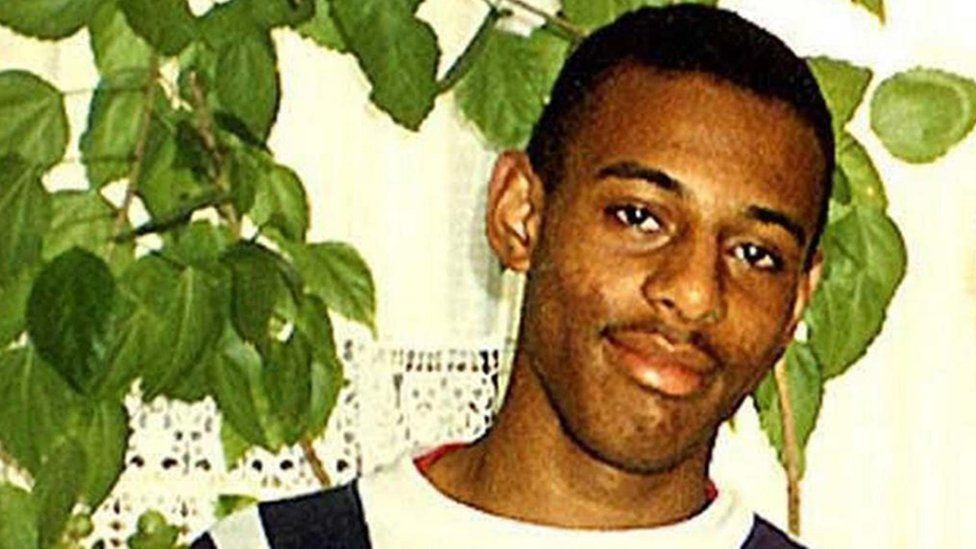
By Daniel De Simone
BBC News
Four retired detectives who ran the first Stephen Lawrence murder investigation will not face criminal charges for their actions in the case.
Lawrence was murdered in April 1993 in a racist attack in south London.
The initial investigation failed to bring anyone to justice – although two of the murderers were jailed in 2012.
Announcing its decision, the Crown Prosecution Service (CPS) said it understood its news “may be deeply disappointing” to Lawrence’s family.
The officers had been investigated by the Independent Office for Police Conduct (IOPC), but the CPS chose not to pursue a criminal prosecution after considering a file of evidence for nearly three years.
The retired officers investigated by the IOPC were:
- Detective Superintendent Ian Crampton, who was senior investigating officer (SIO) for the first four days of the murder investigation
- Detective Superintendent Brian Weeden, who took over as SIO from Mr Crampton and was in charge for 14 months
- Detective Inspector Benjamin Bullock, who acted as deputy SIO under Mr Crampton and Mr Weeden
- Detective Chief Superintendent William Ilsley, who oversaw the team responsible for the first murder investigation
Nick Price, head of the CPS Special Crime and Counter Terrorism Division, said that having “meticulously reviewed substantial amounts of evidence” it had chosen not to pursue criminal charges.
He added that the CPS has offered to meet with close family members “to explain our decision in detail”.
In 1999 a public inquiry led by Sir William Macpherson said the first Lawrence murder investigation was “marred by a combination of professional incompetence, institutional racism and a failure of leadership by senior officers”.
The Macpherson report was highly critical of Mr Crampton, Mr Weeden and Mr Ilsley for the decision not to make quick arrests – arrests did not take place for two weeks despite police receiving information implicating four of the prime suspects within 24 hours of the stabbing.
In 1997 an investigation by the police watchdog had also been critical, but only Mr Bullock was still serving in the Met and therefore available for a disciplinary process.
The IOPC investigation which led to the referral to the CPS first started in 2014 and looked into allegations of corruption against another officer – John Davidson – who worked on the first Stephen Lawrence murder investigation.
The investigation, which was carried out by the National Crime Agency (NCA) on behalf of the IOPC, followed an official review by barrister Mark Ellison KC, which said there were outstanding lines of inquiry into allegations that Mr Davidson was in a corrupt relationship with the father of David Norris, one of Stephen’s killers.
The claims were made by Mr Davidson’s former colleague, Neil Putnam, a corrupt officer turned super-grass.
Mr Putnam, who did not work on the Lawrence murder inquiry, alleged that Mr Davidson had admitted the corrupt relationship to him. Davidson denied the claims.
John Davidson was told in 2019 that he was no longer under investigation because there was no evidence of corruption on his part in relation to the Stephen Lawrence case.
The NCA then investigated Mr Putnam and passed a file to the CPS to consider whether he should be charged with perjury. The CPS has decided he will not be charged.
The IOPC investigation ended up focusing on the four senior officers from the first murder investigation, and their handling of the early part of the case.
In 2020, the IOPC passed a file of evidence to the CPS, which was asked to consider whether they may have committed the criminal offence of misconduct in public office.
The criminal offence of misconduct in public office is committed when the office holder acts – or fails to act – in a way that constitutes a breach of the duties of that office.
New evidence about the murder of Stephen Lawrence, uncovered by BBC investigative reporter, Daniel De Simone.








